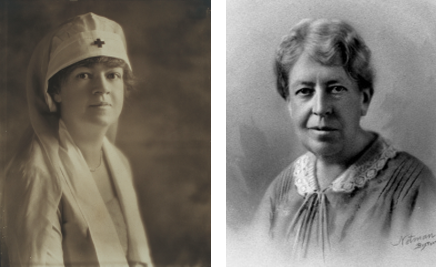MIRECC / CoE
Mental Health Resources for Women Veterans | South Central MIRECC

About
We thank women Veterans for their contributions, accomplishments, and sacrifices during their service. Women Veterans have concerns about mental health care issues such as sexual trauma, anxiety, PTSD, and talking with their kids about PTSD. Did you know:
- About 1 in 3 women seen in the Veterans Health Administration respond "yes" when screened for military sexual trauma (https://www.womenshealth.va.gov)
- Women are twice as likely to be affected by anxiety as men and generalized anxiety disorder often co-occurs with major depression. (https://adaa.org)
- About 10 of every 100 women (or 10%) develop PTSD sometime in their lives compared with about 4 of every 100 men (or 4%) (https://www.ptsd.va.gov)
- In 2014, Disabled American Veterans (DAV) reported that women Veterans would benefit from having more programs available to their family members and would like family members to be more engaged in their care and treatment plans. (https://www.dav.org/)
Our free clinical education products can help women address these issues. The goal of our program is to improve access to mental health care for rural and underserved Veterans of all backgrounds. Join our email list to receive SC MIRECC updates.
View complete clinical education product inventory
Anxiety / Worry
PTSD
Sexual Health / Trauma
Stress Less: Relaxation Enhancement Group Manuals

This brief relaxation intervention is meant to provide short-term symptom relief for anxiety and stress.
- Recommended as an adjunct to established first-line treatment approaches
- Includes manuals for therapists and Veterans
- Therapist manual covers a comprehensive Relaxation Enhancement protocol that includes relaxation practices, resources, strategies, and a log
- Veteran manual can serve as a self-help resource to identify reasons to stress less
- Updated 2019
This product is a best practice.
Acceptance and Commitment Therapy for PTSD

Aids clinicians in implementing a 10-week acceptance and commitment therapy group for Veterans with trauma-related disorders. Includes:
- Clinician manual with detailed session-by-session guidelines
- Veteran Handbook with notes and homework
- Guidance in using the ACT framework to introduce Veterans to exposure therapy
- Published 2017
This product is a best practice.
Courage Group

The Courage Group was developed as a 12-week outpatient therapy group for Veterans who had experienced sexual trauma by Drs. Dana Foley and Michelle Sherman in 1995. This included Veterans with a history of childhood sexual abuse, sexual assault in adulthood, and military sexual trauma (MST). This educational group draws on cognitive and behavioral principles to promote healing, self-discovery, and self-efficacy. The revised manual includes:
- Specific information about the experience of MST and its impact on functioning.
- Addition of four new topic areas – “Surviving Military Sexual Trauma,” “Grief and Loss,” “Self-forgiveness,” and “Moving Forward.”
- A modular design that allows clinicians to vary the length of treatment according to specific group needs or the clinical setting (e.g., specialty mental health, primary care).
- Removal of imaginal exposure from the treatment protocol.
- A new companion patient workbook that includes all in-session activities and recommended homework assignments. This workbook is intended to supplement treatment. It should NOT be used as a self-help guide.
- Published 1995 | Updated 2021
This product is an evidence-based practice.
Sexual Health After Military Sexual Trauma

These brochures for women and men raise awareness of the prevalence of sexual dysfunction after military sexual trauma (MST) and provide information on assessment and treatment of the disorder.
- Includes brochures for providers and Veterans
- Defines MST, sexual health, and sexual dysfunction
- Veteran brochure describes sexual problems, the effects of MST on sexual health, resources, and how to get help at the VA
- Provider brochure details DSM-5 and ICD-10 classifications for sexual dysfunction, provides tips on asking Veterans about sexual health, and lists resources for treatment, including the VA MST consultation program
- Published 2018/2019
Sexual Health for Women Veterans

This brochure describes VA services that support women's sexual health and overall well-being.
- Provides information about women's services available at VA, including birth control, immunizations, and health screenings and medications.
- Encourages women Veterans to discuss VA sexual health services with their clinician.
- Published 2023
Recognitions

Edith Nourse Rogers and Mary Whiton Calkins
Edith Nourse Rogers (1881–1960) - On March 28, 1925, Representative John Rogers died in Washington, DC, after a long battle with cancer. Edith Rogers declared her plan to run for her husband’s seat a week later. Rogers became a congressional institution and was never seriously challenged during her 18 consecutive terms. In 1950, on the twenty-fifth anniversary of her first election, GOP colleagues hailed her as “the First Lady of the Republican Party.”
During World War I, Edith Nourse Rogers inspected field hospitals with the Women’s Overseas Service League. “No one could see the wounded and dying as I saw them and not be moved to do all in his or her power to help,” she recalled. In 1918 she joined the American Red Cross volunteer group in Washington, DC. Her work with hospitalized Veterans earned her the title, the “Angel of Walter Reed Hospital.” During the 1920s, Presidents Warren G. Harding, Calvin Coolidge, and Herbert Hoover each appointed Rogers as their personal ombudsman for communicating with disabled Veterans. She also continued to work in her husband’s congressional offices in Lowell and Washington. The Congressman considered his wife his chief adviser on policies and campaign strategy.
She was the originator of the Servicemen's Readjustment Act of 1944 (GI BILL) and pushed it through congress. In the spring of 1930, as chair of the World War Veterans’ Legislation Committee’s Subcommittee on Hospitals, Rogers inserted a $15 million provision for the development of a national network of Veterans’ hospitals into the Veterans Administration Act. She did so over the objections of the committee chairman, but her diligence was applauded by Veterans’ groups. “Expecting much from her, Veterans always receive much,” one wrote. “She never disappoints.”
On May 14, 1942, the Women’s Army Auxiliary Corps (WAAC) Act was signed into law, creating a corps of up to 150,000 women for noncombatant service with the U.S. Army. A year later that measure was supplanted by Rogers’s Women’s Army Corps Bill, which granted official military status to the volunteers by creating the Women’s Army Corps (WAC) within the Army. She opened the pathway for the Navy’s Women Accepted for Volunteer Emergency Service (WAVEs) and the Air Force’s Women Airforce Service Pilots (WASPs). (Biography adapted from https://history.house.gov/Home/)
Mary Whiton Calkins (1863-1930) - In 1905, Mary Whiton Calkins became the 14th President of American Psychological Association. She was the first woman to serve in that office. Calkins passed all the requirements for a Ph.D. at Harvard with distinction, and wrote her dissertation on memory, for which she developed the paired-associate experimental paradigm, one of the classic tools in memory research.
(Biography adapted from https://www.apa.org/about/governance/president/bio-mary-whiton-calkins)
How Will You Use This Product?
Let us know by answering this 2-minute anonymous questionnaire.
Use of these Materials and Finding VA Health Care
Please note that the health care information provided in these materials is for educational purposes only. It does not replace the role of a medical practitioner for advice on care and treatment. If you are looking for professional medical care, find your local VA healthcare center by using the VA Facilities Locator & Directory. This page may contain links that will take you outside of the Department of Veterans Affairs website. VA does not endorse and is not responsible for the content of the linked websites.
Last updated: July 28, 2025



















